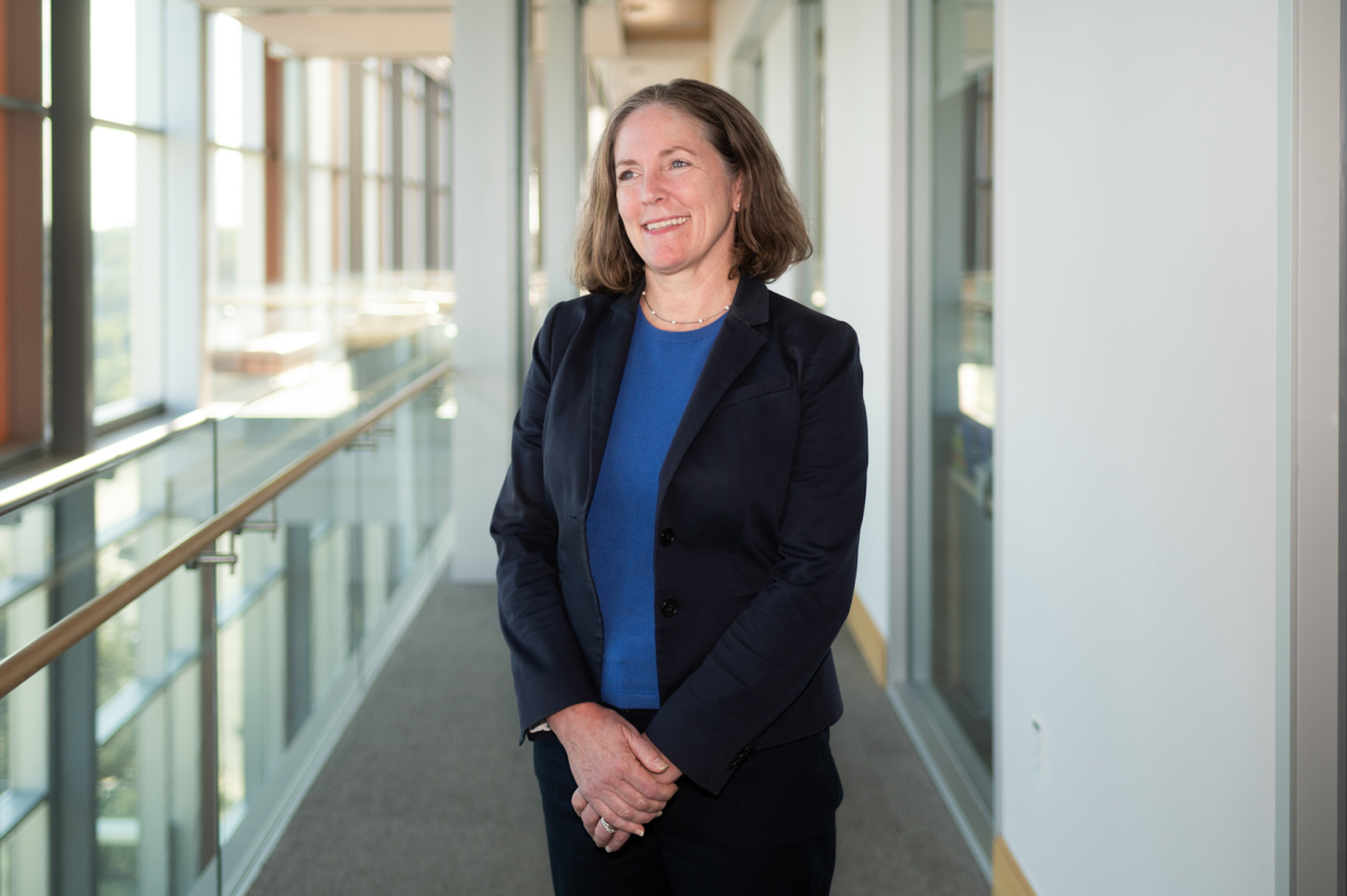Some of the most important decisions about health care are made far outside the clinic. For Central Texans, that could be on Capitol Hill, at the Texas Capitol or even in Austin City Hall.
That’s where Lisa Kirsch, MPAff, senior policy director at Dell Medical School at The University of Texas at Austin, aims to make a difference. A longtime state employee, her role often has been to share information to help inform policy decisions or to operationalize policy — and in recent years, opportunities to teach at UT, in collaboration with the McCombs School of Business and LBJ School of Public Affairs, have offered another outlet for helping future clinicians and health care administrators understand the policy environment in which they’ll work.

Lisa Kirsch, MPAff.
What’s the problem you’re hoping to solve, and how did you come to recognize it?
Policy decisions at the national, state and local levels have a tremendous impact on individual health and population health. The U.S. has rich medical resources and spends more money per capita on health care compared to peer countries, yet our health outcomes do not reflect that and are uneven across populations.
I have worked for 25-plus years in health care policy. Prior to joining Dell Med in 2016, I worked for over 13 years at the Texas Health and Human Services Commission on Medicaid and Children’s Health Insurance Program policy issues. Along with being a policy resource for my Dell Med colleagues and students, one of my goals is to help them better understand the health policy environment in which we work so that they can bring their expertise to bear in shaping and informing policy that enables better health and health care.
What needs to happen to effect change in Austin and beyond?
We have so many opportunities to support pro-health public policy. A first step is to stay informed about what’s going on with policy issues that are important to Dell Med, our partners and the people we serve, especially the most vulnerable patients. That isn’t always easy, but one way is to connect with organizations (professional and advocacy organizations) that align with your priorities for health and health care. Also, vote! Change can be slow, but you have no chance of effecting change if you don’t engage.
Can you share an example of your work that you’re especially proud of?
The world of Texas health policy is actually pretty small. Through my long work history in the state, I’ve developed many trusting relationships that strengthen my work at Dell Med. One of my favorite current projects is work that I’ve done with Rahel Berhane and her team at the Dell Children’s Comprehensive Care Clinic. As a primary care health home for children with the highest medical complexity, they are dedicated to providing team-based, timely, comprehensive care that empowers families and their children to live the best lives possible. However, unfortunately, Medicaid and insurance reimbursement policies do not currently cover most of the services provided.
This project is a wonderful example of the power of collaboration: We work with parents, Texas Medicaid, the Texas Children with Special Health Care Needs Program, health plans and many others. Through a five-year demonstration project funded by the Health Resources and Services Administration, we are evaluating the impact of the clinic’s care model on costs and outcomes that matter to children and families. Ultimately, our goal is to use this information to make the case for why Texas should enable and pay differently for care models that provide comprehensive care coordination and better care integration.
The New York Times asks readers to tell their “Tiny Love Stories” in just 100 words. What’s the tiny story of your work?
I fell into health policy working on the Medicaid budget as a young fiscal analyst at the Arizona Legislature. I then had the privilege to work for Texas Medicaid for 13-plus years — such an important program for low-income Texans, including almost half of Texas children and most nursing facility care. I now get to be part of Dell Med’s work to improve health in our community and evolve new person-centered care models. Teaching is a new passion. I teach future clinicians and health care administrators about the complex policy environment in which they’ll work. There’s always more to learn.